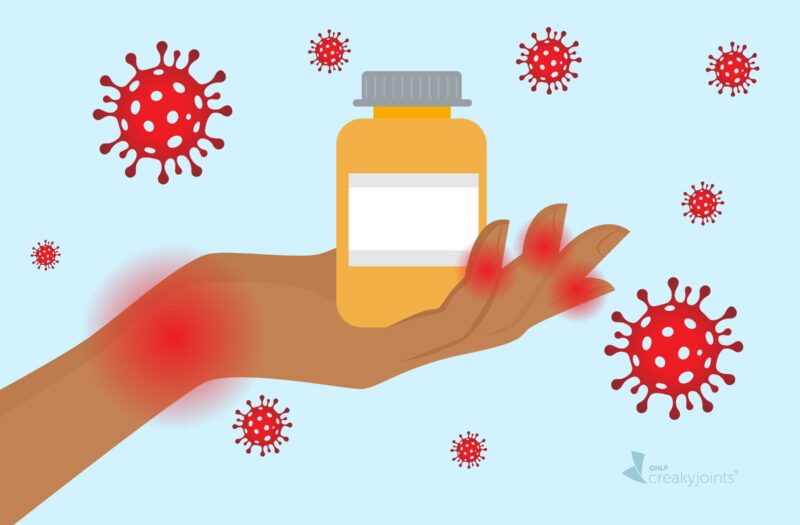Key Takeaways
- While experts are still learning more, scientists have identified a link between taking sulfasalazine and severe COVID.
- Sulfasalazine is thought to lower your immune system’s white blood cells and interfere with an important immune system protein.
- If you take sulfasalazine, don’t stop taking your medicine. Talk to your health care provider about these findings and the right course of action for you.
If you take sulfasalazine (Azulfidine) to treat your rheumatoid arthritis (RA), spondyloarthritis, or inflammatory bowel disease, you may know that this disease modifying anti-rheumatic drug (DMARD) works by lowering inflammation in your body. Although sulfasalazine is not generally considered to be immunosuppressive, it does have the potential to lower white blood cell count (part of your immune system) in some people. It might also interfere with your ability to make type 1 interferon, an important immune system protein.
These possible side effects might explain why recent data has linked sulfasalazine to a higher risk of severe COVID, as reported in The Lancet Rheumatology, though experts need to learn more about this possible connection.
The association between sulfasalazine and severe COVID has recently come to light thanks to several large patient registries. Those include the COVID-19 Global Rheumatology Alliance, the SECURE-IBD registry, and an analysis of data from Swedish patients with RA.
Severe COVID means that patients who contracted COVID were more apt to be hospitalized, be sent to an intensive care unit, or die as a result of complications from the virus. Data from COVID-19 Global Rheumatology Alliance indicated that “sulfasalazine was associated with a significantly higher risk of death in patients with COVID-19.”
The authors of The Lancet Rheumatology commentary noted that “these findings could not be explained by the known mechanisms of action of sulfasalazine” but that scientists had recently learned about the drug’s ability to inhibit with type 1 interferon and that might be a factor. They explained that autoantibodies against type 1 interferon have been found in about 20 percent of critical or fatal COVID cases.
The commentary, which was led by rheumatologists at Johns Hopkins, also suggested that lupus patients who use a treatment that work by suppressing interferon 1 might be at greater risk for severe Covid than other lupus patients. Anifrolumab is one lupus drug that has this effect.
The authors concluded by saying that “a more detailed understanding of the mechanism of action of sulfasalazine, related to its ability to inhibit type 1 [interferon]” is required.
So what do these findings mean for you? If you take sulfasalazine and are concerned that you might be at risk for severe COVID, talk to your rheumatologist. You might be a candidate for an additional booster shot or a preventive treatment called Evusheld.
Get Free Coronavirus Support for Chronic Illness Patients
Join the Global Healthy Living Foundation’s free COVID-19 Support Program for chronic illness patients and their families. We will be providing updated information, community support, and other resources tailored specifically to your health and safety.
American College of Rheumatology. Sulfasalazine (Azulfidine). https://www.rheumatology.org/I-Am-A/Patient-Caregiver/Treatments/Sulfasalazine-Azulfidine. December 2020.
Calabrese L, et al. “Type I Interferon, Anti-Interferon Antibodies, and COVID-19.” The Lancet Rheumatology. doi: https://doi.org/10.1016/S2665-9913(21)00034-5.
Konig F, et al. “Sulfasalazine: A Risk Factor for Severe COVID-19?” The Lancet Rheumatology. March 2022. doi: https://doi.org/10.1016/S2665-9913(22)00067-4.






